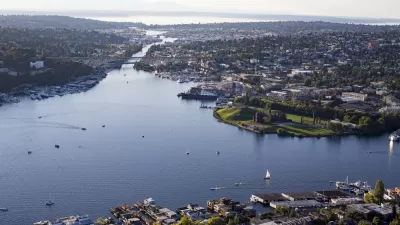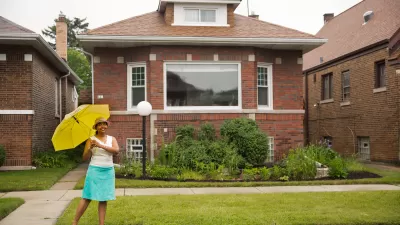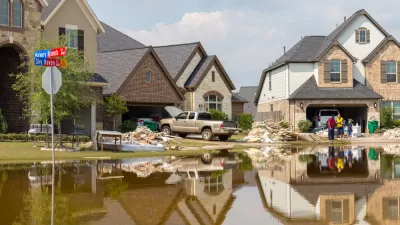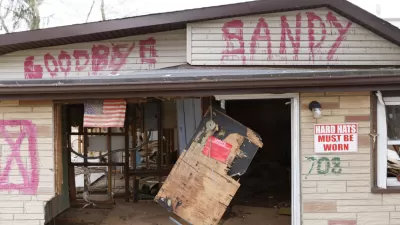Natalie Bicknell notes several deficiencies in the roadmap that resulted from Seattle's participation in the Rockefeller Foundation's now-defunct 100 Resilient Cities program.

When the Rockefeller Foundation pulled the plug on its much-vaunted 100 Resilient Cities program earlier this year, Seattle was still in the middle of its process. "As a result, in comparison to the work achieved by other cities, Seattle's Resilience Roadmap feels rushed and strangely backward looking. Reading through it, I was struck by how the material resembles a laundry list of achievements accomplished by current Mayor Jenny Durkan's administration," Natalie Bicknell writes.
In addition to a generally retrospective focus, the roadmap is also light on details when it comes to weathering natural disasters and climate change. That is, the reasons why resilience became part of the conversation in the first place.
"Seattle's report contains only one slim section devoted to its current strategies for combatting climate change," Bicknell says. And "for a city as threatened by earthquakes as Seattle is, the even shorter shrift given to natural disaster preparedness is a major weakness of the report."
Despite the Seattle roadmap's shortcomings, Bicknell concludes with a word of praise for the erstwhile program. "What 100RC seemed to understand is that cities are complex ecosystems. Establishing urban resilience doesn't result from disconnected programs and policies; instead it arises when the interconnected nature of urban and environmental challenges is acknowledged."
FULL STORY: Seattle’s Resilience Roadmap Lacks a Cohesive Vision for the Future

Alabama: Trump Terminates Settlements for Black Communities Harmed By Raw Sewage
Trump deemed the landmark civil rights agreement “illegal DEI and environmental justice policy.”

Planetizen Federal Action Tracker
A weekly monitor of how Trump’s orders and actions are impacting planners and planning in America.

Why Should We Subsidize Public Transportation?
Many public transit agencies face financial stress due to rising costs, declining fare revenue, and declining subsidies. Transit advocates must provide a strong business case for increasing public transit funding.

Understanding Road Diets
An explainer from Momentum highlights the advantages of reducing vehicle lanes in favor of more bike, transit, and pedestrian infrastructure.

New California Law Regulates Warehouse Pollution
A new law tightens building and emissions regulations for large distribution warehouses to mitigate air pollution and traffic in surrounding communities.

Phoenix Announces Opening Date for Light Rail Extension
The South Central extension will connect South Phoenix to downtown and other major hubs starting on June 7.
Urban Design for Planners 1: Software Tools
This six-course series explores essential urban design concepts using open source software and equips planners with the tools they need to participate fully in the urban design process.
Planning for Universal Design
Learn the tools for implementing Universal Design in planning regulations.
Caltrans
Smith Gee Studio
Institute for Housing and Urban Development Studies (IHS)
City of Grandview
Harvard GSD Executive Education
Toledo-Lucas County Plan Commissions
Salt Lake City
NYU Wagner Graduate School of Public Service





























